- Home
- Kathryn Lasky
Tangled in Time Page 3
Tangled in Time Read online
Page 3
“Naw, got it in Philadelphia. Gilford’s—boys’ department. Cooler shirts in the boys’ department.” She had sewn three other versions of the shirt and special ordered the snap buttons.
“So you’re not at Court, I see,” Anand said.
“Court?”
Anand nodded toward Carrie, Brianna, and Lisa.
“Court of the Mean Queens,” Myles said, laughing. His laugh sounded slightly more like a hiccup now than the previous bubble laugh had. “That’s what we call them.”
“Or sometimes the Trio of Doom,” Anand added.
“That’s when it goes beyond mere bullying and they cross over into their special-ops mode,” Joe said.
“Special ops. You mean they go to extremes?”
“You got it. They can be very strategic. Myles’s wheelchair batteries were stolen one time. We’re pretty sure it was them.”
“That is nasty,” Rose said, trying not to look over at the girls.
Soul thieves, that’s what they are, she thought.
“Nasty?” Anand said. “That’s an understatement.” He turned to Rose. “You mean you haven’t got your passport yet?”
“What? A passport? What are you talking about?”
“See those two girls just sitting down with them now?”
“Yeah.”
“They must have just gotten their passports.”
“I don’t understand.”
“It’s like this, Rose,” Myles said. She was becoming accustomed to his way of speaking. “Once you’ve done enough of the Mean Queens’ bidding—like nasty tricks and all—you get your ‘passport.’ It’s a virtual passport that allows you into their small, foul world.”
“Who would want to be in that world?”
“They always have some sixth graders in training,” Joe said. “You know, some kids think it’s cool to be accepted or just noticed by older kids—even the bullies.”
“They long to belong!” Anand said. “See those two other girls trying to squeeze in at the table—those sixth graders?” Anand asked, nodding to two girls.
“Like remoras,” Myles offered, and laughed again.
“What?” Rose had no idea what remoras were.
“Suckerfish,” Myles replied. “They attach themselves to sharks. I did a science report on parasites in nature. Covered a lot—from strangler figs to remoras. Usually the relationships are mutually beneficial, but in the case of strangler figs, they kill their host tree. That one girl with the blond hair and the pink streak? She’s a Carrie wannabe, obviously.”
“What about the girl with the hair bow?”
“Sibby Huang,” Joe replied. “She worships Brianna because of her skating. She belongs to the same skating club I do. She’s good. Very good for her age.”
“Should we—uh—get emotional about strangler figs killing hosts, or just chalk it up to one of the cruelties of nature?” Anand asked as they kept their eyes fastened on the sixth graders circling the Court of the Mean Queens.
“What do the remoras do for the Mean Queens?”
“Play fetch, mostly, like obedient dogs,” Joe said. “And sometimes take the blame for their dirty tricks.”
“What are their dirty tricks, or special ops, as you called them?”
“The Mean Queens do a lot through texting—gossip, spread rumors. Don’t let them get hold of your cell phone. But they don’t limit it to kids. They were really mean to Ms. Elfenbach last year too.”
“The math teacher? She’s so nice.”
“Yeah, well, Carrie, who thinks she’s God’s gift to mathematics, was ticked off about her grade,” Joe said. “She claimed Ms. Elfenbach was drunk or something when she graded a test last year. She started a rumor that she was an alcoholic. Carrie and the rest of the Mean Queens started calling her Ms. Alcobach.”
Rose was aghast. “That’s terrible.”
“Yeah,” Myles broke in. “That’s what they consider really funny. So lame. Perfect example of their Trio of Doom behavior. Very destructive. Way beyond bullying.”
“So, moral of the story,” Anand said, “is: watch out.”
Rose did watch out. Until two days later, when she found herself alone in the hall. Her grandmother’s driver, Calvin, was planning to pick her up that day to take her to an orthodontist appointment after school. He had told her he would be a few minutes late. It was a minute or two past three, and the halls were empty since school had let out at 2:45. She was just getting the books she needed that night from her locker when she heard footsteps, then giggles, and then felt one hand? Two? Maybe three, shoving hard against her back. Her head banged against the metal; then there was a slam. Complete darkness. She heard a click, a sickening click. Trapped! I’ve been locked in my own locker.
“Have a nice night in school!” a voice sang out. “Maybe you can write about it on Threads!” Another voice she didn’t recognize squeaked. There were giggles from other girls. “You see—that’s how it’s done,” Lisa said to someone. “That’s how you’ll get your passport.”
“Let me out of here. Let me out!” Rose screamed. She beat on the door of the locker. The metallic sound reverberated down the corridor.
Panic surged through her. Now just calm down, she counseled herself. Calm down, Rose. Someone will come—a janitor or someone. Do some deep breathing. Calvin said he’d be late. He’ll wonder why I’m not outside and come into the building. She suddenly realized she could call on her cell phone. Who would she call? Her grandmother? No—the school, of course. She’d google the phone number. She reached into her pocket for her phone.
Nothing! She turned the pocket inside out and heard the clink of a penny and the dry rasp of some Skittles falling onto the metal floor. The phone had been there minutes ago. Joe’s words came back to her: Don’t let them get hold of your cell phone. They had it! Now what? There was an eerie stillness as the school grew silent. Then she could hear the school buses pulling away outside. And there was darkness, total darkness. The panic rose again.
Then, at last, a voice. “Rose. Rose, it’s me. Myles.” She heard something scratching on metal. Suddenly the locker door opened. There was Myles in his wheelchair.
“Nothing like a compass for picking locks.”
“Myles, you’re here?!” she said, stepping out of the locker as Myles backed away in his wheelchair.
“Yeah—why do you look so surprised? Well, maybe you should be. But I’m very good with my one working hand.” He lifted his hand that was holding his compass for geometry. “Lucky we started that geometry chapter this week,” he said, dropping the compass into a bag slung over the handles of his wheelchair.
“How long have I been in there?” she asked, glancing at the clock. It said 3:08. “Is that clock right, Myles?” He looked up at it, then at his watch.
“Yeah, 3:08.”
“It was just five minutes. It seemed like forever.”
“I heard the Mean Queens giggling and a sixth grader was tagging along. They were saying something about shoving someone into a locker. I figured it was you.”
“You did? How come?”
He looked at her and tipped his head. “You really don’t know why?”
“I’m not sure . . . my blog, maybe?”
“Not maybe—definitely, Rose. They’re just jealous.”
“But I haven’t written on my blog since . . . since my mom died.”
“The internet, YouTube. Just google Rose Ashley and you show up.” Myles stopped his wheelchair and met her eyes.
“Don’t let them scare you, Rose. You should keep writing your blog. They’ll get bored eventually. That skirt you made from scarves and ties, that was so cool. I showed my mom a picture of it on your blog. She thought it was great. And that bow tie of the month thing! Joe had this great idea.”
“What’s that?”
“Could you make us all bow ties? You should do some for girls too, of course.”
“What girls would wear them?”
“Not all the girls at Li
ncoln are Mean Queens. Like Susan and Zora and Lydia. They’ve all checked out your website.”
“Well, I have to wait until my sewing machine arrives. It’s supposed to come any day.”
He started up his wheelchair again, and they walked outside. Rose thought about what he was saying. His electric wheelchair suddenly shot ahead.
“Hey, slow down. Doesn’t that thing have a low gear?”
“Oh, sorry. I thought you were a fast walker.”
“Not today.”
“Are you all right, Rose?”
“Yeah . . . yeah . . . as right as one can be after being shoved in a locker. Just thinking about what you said.”
“Someone’s waving at you over there.”
“Oh, that’s Calvin, my grandmother’s driver. I have an orthodontist appointment.”
“Okay, see you tomorrow. I hope those girls get what’s coming to them for that. It was a mean trick.”
Rose turned on her heel. “Don’t tell on them, Myles. It will make it all the worse—for me. I . . . I can handle it.”
“I’m sure you can, Rose. Never doubted you. But I am going to tell Joe and Anand. We’ll be on the lookout for you.”
“I’m not really hungry,” Rose said when Betty opened the front door. “My teeth hurt. The orthodontist tightened my braces. Have my boxes come yet? Caroline said she sent them two days after I left.”
“No, but they will get here. UPS is very reliable.”
Rose said nothing, but she was truly upset. The remnants of what had been her life were in those boxes—the sewing machine, yards of wonderful fabric, books, her sketch pad and three whole folders full of designs, her own designs for outfits past and those that she had hoped to make. But admittedly it was hard to even think of a future without her mom. And getting back to her blog? She might not be ready yet.
“No snack? No dinner?” Betty asked softly.
“Nothing.”
“I’m sure Cook could fix you some soup. And there’s angel food cake that Cook baked. That’s very soft, you know. Your grandmother will be so disappointed. She enjoyed her time with you in the greenhouse.”
But Rose was already off, tearing up the stairs to her bedroom. She flung her books on the desk and flopped onto the bed. Beating her fists into the pillow, she sobbed, “Why . . . why did you have to die, Mom? How could you?”
There was soon a sodden patch against her cheek. It was as if she had cried an ocean into that pillow. The last thing she remembered hearing was the scraping of her grandmother’s walker outside her bedroom door and then Rosalinda’s voice. “Leave her be, Betty . . . leave her be.”
It was the plinking of raindrops against the windowpane that woke her up. Outside there was only pitch black. The glass of the windowpane was a sheet of sliding water. Except for the sound of the rain, the entire house was quiet. She felt a gnawing hunger and decided to go to the kitchen and find something to eat. Passing her grandmother’s room, Rose could hear Rosalinda snoring softly. She made her way down the stairs toward the kitchen. She dared not turn on a light, but her eyes had grown accustomed to the darkness.
Under a glass-domed platter, a cake perched. It had already been cut into and seemed to invite her to take a slice. There was a knife set beside the platter. Quietly she removed the dome cover and cut herself a piece. She was just about to take a bite when she looked through the kitchen window that had a fine view of the greenhouse. She noticed that the glass roofs seemed to glow. How could this be on such a pitch-black and moonless, rainy night? she wondered. It was as if the greenhouse possessed a moon of its own. She set the piece of cake on the counter and went out through the kitchen pantry and across a hall that led into the glasshouse from the rear, the door Cook always used when delivering dinner to Rosalinda.
As she stepped into the greenhouse, the air swirled with the scent of the jasmine vines that now tumbled from the cupolas, almost reaching the floor. The tray of love-lies-bleeding that she had thinned out had burst into bloom, with dangling blossoms like pendulous ruby necklaces. Foliage that had barely unfurled was now thick and stirring softly in a phantom wind. It was as if magically a fragrant jungle had sprung up around her. There were no longer trays neatly arranged in rigid rows awaiting her grandmother’s tender attentions.
She looked up once more at the cupolas, but there were no cupolas. A flawless blue sky stretched overhead, and beneath her feet was a woodland path. Ahead she heard a meow. September? Rose stopped abruptly and listened. All was silent, and then suddenly she heard a giggle.
“Grandmother?” she called out softly. Hesitantly she continued down the path and soon heard footsteps. She realized that she must be far beyond the confines of the greenhouse. There were no walls of glass. The roofs had dissolved into this bright new morning, and straight ahead there was a girl. She wore a sapphire-blue dress that reached the ground. It was trimmed with ornate braid. The bodice was tight-fitting and heavily embroidered. From beneath the hem of the skirt peeped pointy-toed scarlet shoes. Those shoes! Rose thought. What she wouldn’t give for those shoes! The girl’s bright red hair was arranged in a circlet of elaborate braids atop her head, although a few strands streamed out from the braids like escaping flames. They looked at each other, startled.
“Guards! Guards!”
What in the world? Rose wondered as a man came around the bend in a fitted jacket emblazoned with brass buttons, gold epaulets, and ballet tights! Had she stumbled into a Shakespeare play? She didn’t wait to ask but turned and bolted.
She ran breathlessly through the thickets of shrubbery laden with large exploding blossoms, burrowed through openings in the tall hedges and tangles of brush. Soon she smelled the familiar muggy odor of the greenhouse and the path gave way to the neat aisles with the tray tables of seedlings. The long, dangling vines of the jasmine had retreated in an orderly fashion to the airy realms of the cupolas. She heard the welcoming patter of the rain against the glass. It was once more pitch black. She raced up the stairs and back into her bedroom, where she shut the door firmly, then slid a chair beneath the handle to jam it, to lock out whatever it was she had encountered.
This was a dream, just a dream, she told herself. It couldn’t have happened. None of it. It was as if she had just emerged from a fever dream. She was afraid to go to sleep. Sketching always calmed her. So, sitting at her desk, she picked up a pencil and began to sketch what she could remember of the shoes and the dress. The shoes were incredible. There was a circular jeweled buckle on them, and from that a brighter red piece flared like a single batwing. Bat shoes! How cool was that?
Then, going to her computer, she decided to type her first entry in her blog in nearly two months.
* * *
Call these my dream shoes. They tiptoed into my dreams last night, or maybe I tiptoed into theirs.
And they’re not from a landfill! Yes, I know that my last post on shoes was about the three hundred million shoes that are dumped in landfills. It’s become a real environmental problem. In my last school, we did a student project with Planet Earth’s recycling program and went to a landfill and reclaimed shoes. But tonight it wasn’t a landfill, it was a dream, and I saw these! Manolo Blahnik, step aside, please. Sweet dreams!
* * *
The next morning when she went downstairs, Cook greeted her warmly with a twinkle in her eyes.
“Didn’t like my cake, did you? One bite and left it on the counter.”
“Oh, sorry.” She looked down and saw scratches on her arms, as if they had been torn by thorns or the brambles of a thicket. Then it wasn’t a dream?
Chapter 4
“I Don’t Exactly Hate You . . .”
Rose’s phone was turned in on Monday. It was “found on the school grounds,” a likely story. She expected the Mean Queens had done something awful with it, but so far it seemed all right. Rose was relieved. She even began to think that perhaps it had fallen out somehow when she, Myles, Joe, and Anand had gone outside to collect leaves for microscope slid
es in science class that day. So life went on uneventfully. But as hard as she tried to banish the thoughts of her strange experience in the greenhouse, the memories lingered. The girl in the sapphire-blue dress, the wonderful pointy-toed red shoes, the guard in tights, the cupolas that had dissolved into the sky of another day, a new morning. The more she thought about it, the more dreamlike it became. Except for that meow. She had heard the meow just before she glimpsed the girl. The cat’s cry lasted longer in her mind than the scratches on her arms from the brambles.
She began once again to help her grandmother in the greenhouse. She wanted to prove to herself that in fact the jasmine had not miraculously grown long enough overnight to reach the ground. And she was right. The flowers were still suspended a good twenty feet above the floor of the greenhouse. And the seedling heads of the loves-lies-bleeding were sealed shut, with perhaps just a thread of the deep red color showing through.
“Oh, it will be another month or more until they open,” her grandmother said when she noticed Rose looking at them so closely.
Rose looked around. Her grandmother seemed quite alert, especially compared to nights when she would stare at her blankly. So often Rose felt as if she were a stranger in this household, or at best treated as some kind of gentle intruder. She didn’t really blame her grandmother. She knew she was teetering on the edge of some sort of dementia. Yet here in the greenhouse her grandmother was always alert. She seemed “grounded” in this soil, this old dirt that Rosalinda had called good dirt.
Rose continued to help. And each night after her grandmother went up to bed, Rose would set out some milk in a tin pan with some crumbled biscuits for the cat. She rarely saw the cat, but she had the sense of being observed by those tilting green eyes. She had decided September was a “her.” And occasionally she did hear her meowing. When she did, she always thought of the girl with the pointy red shoes. She loved those shoes!
And she loved September too. She wished the cat wasn’t so shy. September, she decided, was not an ungrateful cat. Just an eat-and-run cat. Cats were odd creatures. One had to give them time. Never rush a cat, Rose thought. Perhaps someday she might write a book about cats. Tips for Cat Owners. But that was the catch, of course. No one ever really owned a cat.

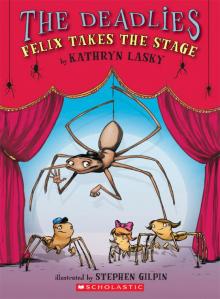 Felix Takes the Stage
Felix Takes the Stage Lucy
Lucy Lone Wolf
Lone Wolf Broken Song
Broken Song The Shattering
The Shattering The Crossing
The Crossing May
May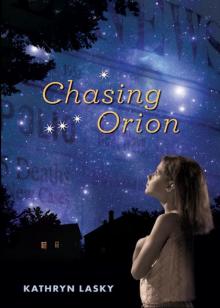 Chasing Orion
Chasing Orion Star Rise
Star Rise The River of Wind
The River of Wind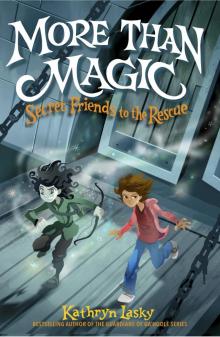 More Than Magic
More Than Magic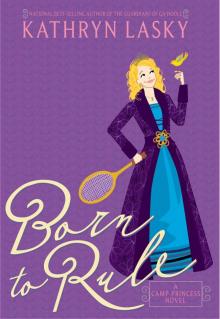 Born to Rule
Born to Rule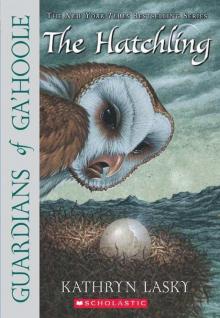 The Hatchling
The Hatchling The Rescue
The Rescue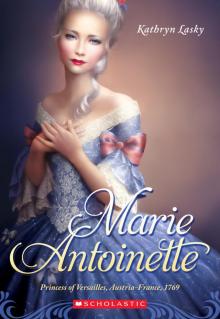 Marie Antoinette: Princess of Versailles, Austria - France, 1769
Marie Antoinette: Princess of Versailles, Austria - France, 1769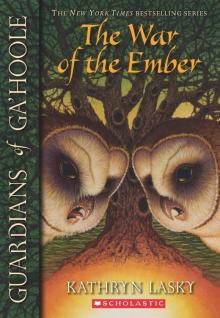 The War of the Ember
The War of the Ember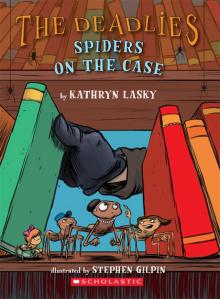 Spiders on the Case
Spiders on the Case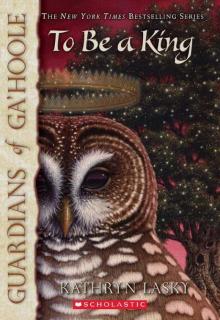 To Be a King
To Be a King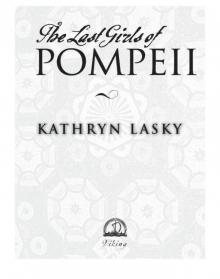 The Last Girls of Pompeii
The Last Girls of Pompeii The Outcast
The Outcast Exile
Exile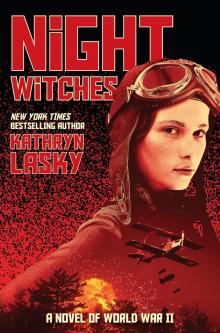 Night Witches
Night Witches Spirit Wolf
Spirit Wolf The Quest of the Cubs
The Quest of the Cubs Frost Wolf
Frost Wolf The Keepers of the Keys
The Keepers of the Keys The Extra
The Extra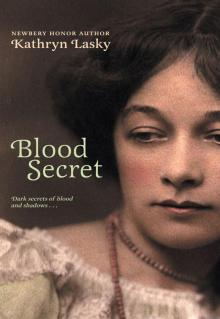 Blood Secret
Blood Secret Watch Wolf
Watch Wolf Blazing West, the Journal of Augustus Pelletier, the Lewis and Clark Expedition
Blazing West, the Journal of Augustus Pelletier, the Lewis and Clark Expedition The Capture
The Capture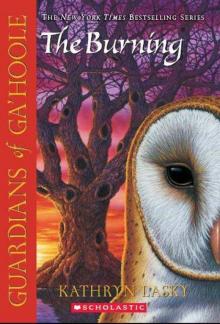 The Burning
The Burning The Journey
The Journey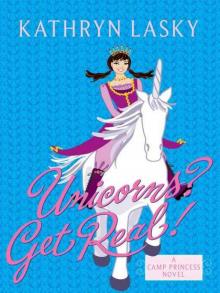 Unicorns? Get Real!
Unicorns? Get Real! The Escape
The Escape Star Wolf
Star Wolf Ashes
Ashes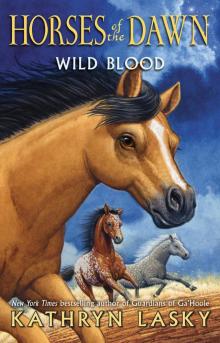 Wild Blood
Wild Blood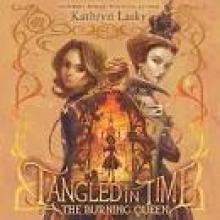 Tangled in Time 2
Tangled in Time 2 The Siege
The Siege Hannah
Hannah Elizabeth
Elizabeth A Journey to the New World
A Journey to the New World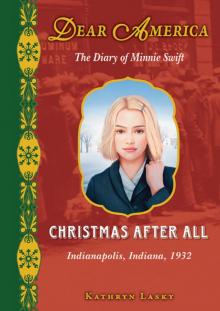 Christmas After All
Christmas After All Mary Queen of Scots
Mary Queen of Scots